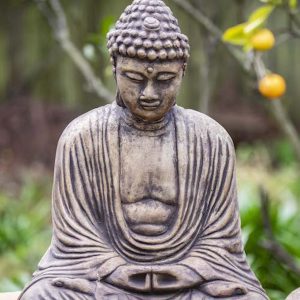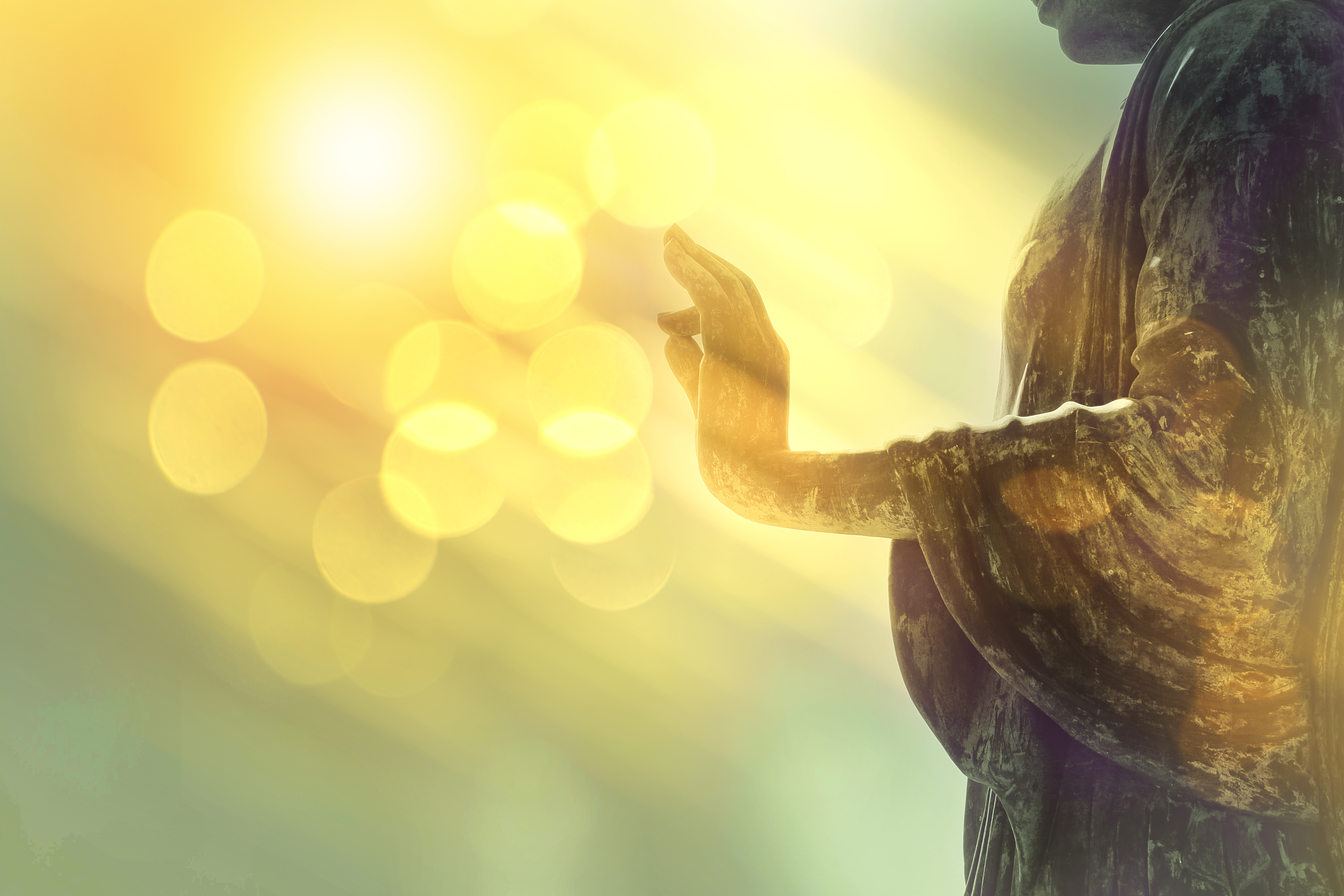
Intro to Buddhism: What is Meditation?
We asked Professor Doug Powers for some of his insights on meditation.
Why should I bother meditating? Is meditation helpful?
The first step to these kinds of questions is having a common description that we hold together of “what is.” Until we have a common description of our experience, we cannot have a conversation about what’s going on. The Buddha always starts with the same issue: Do you have any restlessness? Do you have any suffering? Any lacking? Any kind of disquiet? Are you in any way unsettled?
— “No, I’m completely settled, everything’s cool.”
Then, fine! More power to you! That’s really cool. I’d like to be more like you.
— “Well yeah, I’m a little bit restless.”
If someone says this, then that’s where you start. What’s the basis of your unsettledness? Would you like to be more settled? Would you like to be more contented? More still? More calm? Or do you enjoy the constant activity? Until you’re tired of it, there’s really not much to say, but if you do get tired of it or are interested in a different state, that’s where you start.
It’s a prescription, it’s not an ideology or a religion or something. We’re not trying to put anything on anybody.
What is meditation doing?
Essentially, there are two types of consciousnesses. First, there’s the type of consciousness that is just simply going with the habituation. To use the metaphor of a river, we’re just flowing down the karmic conditions of both our own consciousness and the collective consciousness. And then, there’s the cultivator.
Cultivation means to try to turn back against the river to find a way to totally change, to find the freedom of mind to be able to observe the process of consciousness directly.
What a cultivator does is to try to learn how to be aware in a way that the freedom of their mind can be observed directly, moment-to-moment. They can actually see the freedom of their mind, and see how it chooses what it’s going to attend to. What most people think is “freedom” is the freedom to move the mind in any way. But that’s not freedom because it’s always conditional and habitual. The cultivator realizes that ultimate freedom is the mind not moving. The cultivator constantly looks into awareness in a way so that it can observe awareness prior to content and begin to see how awareness and content are not different. They’re not moved by the habituation of the thought, but just let the thought pass without moving towards it. The mind doesn’t have to always move towards what’s arising, it can simply let it pass.
How do I maintain motivation for practice?
What we’re talking about is your own mind. Once you have actually practiced for a while, you go through a transition from being caught up in constantly avoiding awareness, to having some sense of it and then getting comfortable with it. After which, you pass through a point where the idea of not being in that awareness is not something you would choose purposely, because whatever the confusion is, it’s a lot less energetic and exciting.
Awareness itself is extremely energetic. It’s not dead. It’s totally aware.
It’s a constant state of awareness, and you can maintain this as long as you don’t lose energy into something you get attached to. You can go all day in a kind of very open, excited awareness. Once you get a little bit of that, you don’t necessarily want to trade it. It doesn’t mean that you’re not doing stuff, but that when you’re doing things, you’re not getting so caught up in your identity. You can be as social as you want this way. You can be much more social in this kind of awareness than you can in your usual kind of awareness because you’re open in every context, attending to the people in whatever context. So, you don’t have to not be aware of things, you just have to engage them from a different vantage point. And if you don’t have something in the moment that you are going to spend your time being aware of, the fallback position is perfectly okay. In other words, the fallback position of just sitting with nothing to do is equally okay with the most exciting thing to do. It’s not a matter of not being involved, it’s a matter of how you’re involved.


